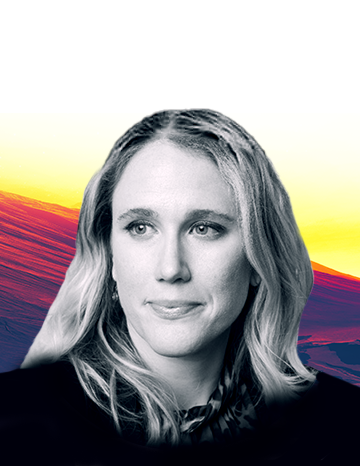If you’ve ever wondered how Amazon will eventually come into play in space (besides a trip from Jeff Bezos), a new series with roots in Reston, Virginia, might have your answers.
ASCEND, an online professional community for those interested in space exploration, has a brand new series on what the future of space might look like. Short for Accelerate Space Commerce, Exploration, and New Discovery, Reston’s ASCEND was launched in 2020 by the American Institute of Aeronautics and Astronautics, an aerospace technical society.
“Fast Forward: Envisioning the Off-World Future,” which premiered last month, is a new video series on what the future of space might look like. The on-demand series, which is releasing new episodes a few times per month, covers the growth of industries in space, from infrastructure to medical science and commerce. Its pilot episode, Accelerating Biomedical R&D in Space, features Techshot VP Rich Boling and covers the biomedical industry in space (in other words, manufacturing organs in space). The series is hosted by Devin Liddell, principal futurist at design firm Teague, and Kara Cunzeman, lead futurist for strategic foresight at The Aerospace Corporation, a nonprofit for space analyses and testing.
Liddell told Technical.ly that the intention of the series is to help people get a grasp on what the future of space will really look like, and how close we are to a whole host of innovation that seems like something out of a sci-fi movie.

Fast Forward cohost Devin Liddell (Courtesy photo)
“When you start thinking about what will happen in space, in particular, the activities of industry, I think there is a tendency to think about it perhaps too narrowly,” Liddell said. “So one of the things we want to get across with the series is ‘Hey, here are some key industries that may actually be unexpected from your research point, and what they’re anticipating doing in space near-term and far-term,’ and it’s extraordinary.”
Each episode, which will run about 25-30 minutes, will feature a guest expert to talk about a specific facet of the space industry. Next up will be Michael Costas of Bechtel Corporation, an engineering and construction firm, and Brian Barritt, an engineering manager from Facebook.
While there are many facets of technology involved in a space trip, Liddell said he hopes to highlight aspects of artificial intelligence in future episodes.
“So, how do we illuminate some of those technical challenges that we’re going to have to solve for?” Liddell said. “Yes, they’re challenges, but they’re also exciting ones.”
Cunzeman, on the other hand, said she’s particularly fascinated by the manufacturing possibilities within space. In the same way that she said companies like Amazon will be predicting when people run out of frequently bought items, like dog food, and replenish them, that same technology can be applied to the International Space Station and lunar bases.
“There’s some real benefits for space as a manufacturing ecosystem, and that’s not on Mars, that’s right in our backyard,” Cunzeman said.
Liddell agreed, noting that one exciting part of this technology is that whatever humans replicate for space, it will need to have its own twist and innovation to make it plausible in space.
“We think about…all of the touchpoints that comprise the human experience on Earth,” Liddell said. “There’s a lot of that which will import into space in fairly translatable ways, but there’s a lot that actually will have slight turns that will be extraordinary in their own way.”
Watch the first episode hereJoin the conversation!
Find news, events, jobs and people who share your interests on Technical.ly's open community Slack

DC daily roundup: Esports at Maryland rec center; High schoolers' brain algorithm; Power data centers with coal?

DC daily roundup: Tyto Athene's cross-DMV deal; Spirit owner sells to Accenture; meet 2GI's new cohort

DC daily roundup: $10M to streamline govt. contracting; life sciences might dethrone software; Acadia's new $50M


